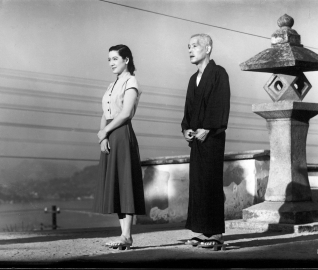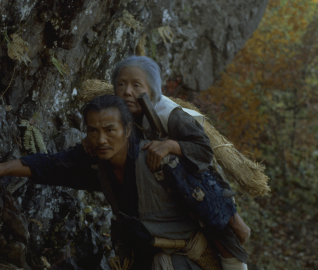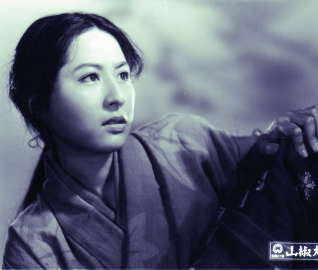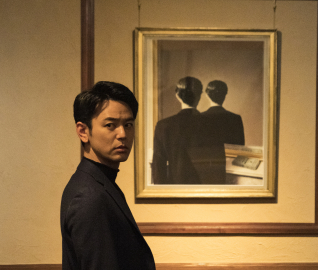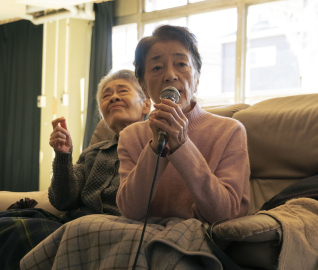The 23rd edition of the Transilvania International Film Festival (June 14-24, 2024, Cluj-Napoca) pays homage to Japanese cinema through Focus Japan, an eclectic program that brings together films of reference in cinema history, the top acclaimed recent productions, as well as workshops and special programs.
Focus Japan is organized at Transilvania IFF with the support of the Embassy of Japan in Romania, JTI, the Japan Foundation and the Center for Romanian-Japanese Studies „Angela Hondru”.
Contemporary Japanese Cinema
"The eight selected films come together in a kaleidoscope of as many genres and styles, with ultra award-winning and resounding titles, but also a playful indie flick, an anime sensation, a boundless documentary, and a fresh title from this year's Cannes Film Festival," says Crăița Nanu, section curator.
Remembering Every Night (dir. Yui Kiyohara) comes from the 2022 Berlinale and talks about time and its passing, through three women who cross paths in one of the largest residential districts near Tokyo. Shot by the same cinematographer who worked on Wheel of Fortune and Fantasy (dir. Ryûsuke Hamaguchi), Kiyohara's second film is an extremely luminous story that urges you to remember the darkness differently.
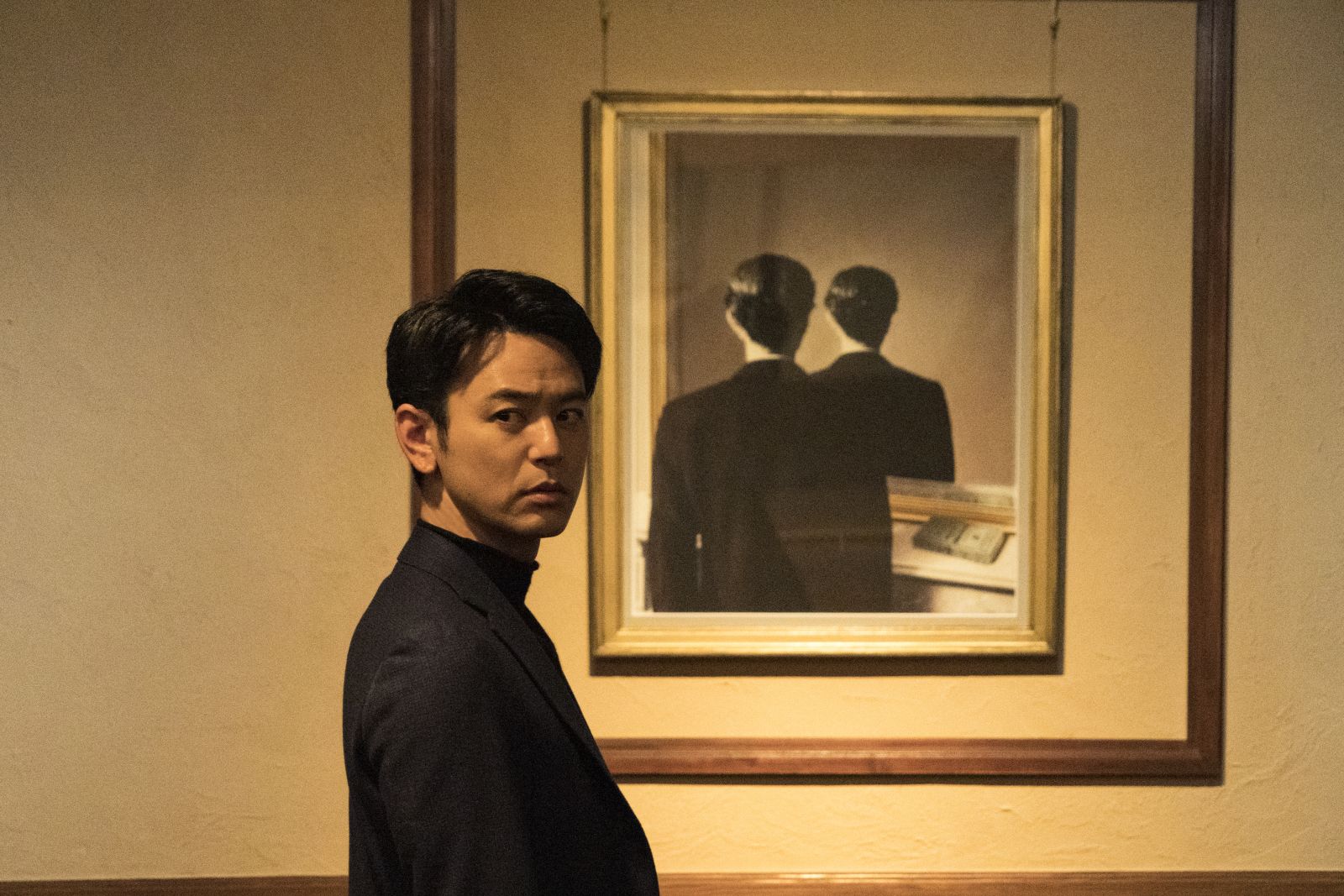
Un bărbat (A Man, r. Kei Ishikawa)
Director Kei Ishikawa plays with psychological thriller conventions in A Man (2022), cleverly disguising an analysis of society, with its prejudices, the labels it creates and their consequences. All in the story of a woman who, after the death of her husband, discovers that the man she loved was not who he had said he was.
Awarded the 2022 Caméra d'Or at Cannes and selected to represent Japan in the Oscar race, Plan 75 (dir. Hayakawa Chie, 2022) presents a dystopian reality in which the government encourages people over 75 to use free euthanasia services. While many countries are dealing with declining birth rates and aging populations, the film asks some necessary questions that will make you reevaluate how you relate to those around you.
Director Junta Yamaguchi is a veteran of stories trapped in time loops. River (dir. Junta Yamaguchi, 2023) is an indie fantasy comedy that reprises the Groundhog Day formula and serves it up in its a version that is as distilled as the rarefied air of the mountain resort where the film takes place. There, the employees of a hotel realize that every two minutes they jump in time and struggle to cope with the situation in order to keep the guests satisfied.
Directly from the Un Certain Regard section of this year's Cannes Film Festival comes director Hiroshi Okuyama's second film, who Thierry Frémaux introduced as "a young Hirokazu Kore-Eda". My Sunshine begins with the first snowfall of the year, when a boy discovers his passion for figure skating, and is a delicate coming of age story, ruthlessly curtailed by the arrival of spring.
The Contestant (dir. Clair Titley, 2023) is a phenomenal documentary about one of the most sadistic reality shows on Earth: in it, a contestant spent no less than 335 days naked in a room, cutting out coupons from magazines, unaware that he is being filmed 24 hours a day. Seen chronologically, Nasubi's story is poignant and feels terribly actual, highlighting the notoriety one gains at the cost of one's privacy and the effects such programs have on the contestants' psyches.
Today’s Focus Japan would not be complete without Perfect Days (2023), the latest title from legendary Wim Wenders. Dubbed a jewel, a masterpiece, a work of art, or the best title in the filmmaker's cinematography, the film tells the story of a simple man who knows how to enjoy all the small and seemingly insignificant things that make up life.

Primul Slam Dunk (First Slam Dunk, r. Takehiko Inoue)
Finally, no program dedicated to Japanese cinema could not be complete without an animated film. Based on a manga series, First Slam Dunk (dir. Takehiko Inoue, 2022), the exciting story of a decisive match between two high school basketball teams, written and directed by the creator of the original series, was a real box office hit – the fifth most successful anime in history.
Director Ryusuke Hamaguchi completes the Japanese cinematic landscape at Transilvania IFF with three titles in the 3x3 section: Evil Does Not Exist (2023), winner of the Grand Jury Prize in Venice, the story of a village threatened by the construction of a glamping site; Drive My Car (2021), an emotional adaptation after Murakami that earned its director the Oscar for Best Foreign Film; and The Passion (2008), the director's second film, with which he graduated from Tokyo University, the story of an engagement party which takes an unexpected turn.
Classic Japanese cinema in restored versions
One of the most important representatives of the so-called Japanese New Wave, a movement of a new generation of filmmakers who explored topics considered taboo, Shōhei Imamura is also the only Japanese director to win two Palme d'Or awards at Cannes. He received one for The Ballad of Narayama (1983), whose plot is set in a 19th century village, where tradition requires those who reach the age of 70 to retire to a mountain, where they wait to die of starvation.
It’s likely that no best film in history list could fail to include Tokyo Story (1953), Yasujirō Ozu's masterpiece that talks, in part, about the Japanese family system, but, at the same time, is extremely universal. The story of the elderly couple visiting their children in Tokyo resonates eternally, with any age.
Kinuyo Tanaka is not only Japan's second female director, but also an actress who has starred in more than 250 films, some of which bear the signature of some of Japan's most important filmmakers. Her author filmography only includes six films, but they are central to Japanese cinema, questioning themes such as the condition of women in post-WWII Japan. Girls of Dark (1961), which you will be able to see at Transilvania IFF as part of Focus Japan, tells the story of a former sex worker who tries to rebuild her life.
It could be said that Kenji Mizoguchi is a genuine institution of Japanese cinema. His career totals almost a hundred films, which deal with moments from medieval history as well as contemporary subjects. Sansho the Bailiff (1954) belongs to the first category and is about the sons of a disgraced former governor who end up in slavery. Critic Anthony Lane of The New Yorker wrote of this film, which won Mizoguchi the best direction prize at the Venice Film Festival, "I have seen “Sansho” only once, a decade ago, emerging from the cinema a broken man but calm in my conviction that I had never seen anything better; I have not dared watch it again, reluctant to ruin the spell, but also because the human heart was not designed to weather such an ordeal.".jpg)
O filă de nebunie (A Page of Madness, r. Teinosuke Kinugasa)
The program is completed by a cine-concert of A Page of Madness (dir. Teinosuke Kinugasa, 1926). Irina-Margareta Nistor and the band CelloFun will bring the silent experimental thriller to life on June 18, at Cinema Dacia Mănăștur.
Japanese experiences at Transilvania IFF 23
Focus Japan will be completed at Transilvania IFF by a series of experiences supported by the Center for Romanian Japanese Studies: a MANGA workshop presented by illustrator Anca Toma Noctis Art, an Origami workshop by artist Alexandra Baranyi, and an IKEBANA workshop by Andreea Georgescu. Demmers will demonstrate the Tea Ceremony.
NEZUMI by Nemira, the first MANGA imprint in the Romanian language, will present a MANGA behind-the-scenes panel, and the Humanitas Fiction Publishing House proposes, as part of Focus Japan, a reprint of Strangers by Taichi Yamada, the basis of the film All of Us Strangers, which will be screened within the festival. A wide selection of traditional Japanese products can be found at Humanitas (Takumi) Bookstores in Cluj, and a selection of Manga and contemporary products can be found in Cărturești Bookstores.
Copyright images: The Ballad of Narayama, Tokyo Story, Girls of Dark, Sansho the Bailiff: Japan Foundation
Subscriptions for TIFF.23 are available on sale online at https://tiff.eventbook.ro/
***
You can follow us on:
tiff.ro | Facebook | Instagram | Youtube | TikTok
***
The Transilvania International Film Festival is organized by Asociația pentru Promovarea Filmului Românesc and Asociația Festivalul de Film Transilvania.
With the support of: the Ministry of Culture, the National Center of Cinematography, the Cluj-Napoca City Hall and Local Council, the Romanian Cultural Institute, Dacin Sara, UCIN, Dept. inter-ethnic relations - DRI, Florești Town Hall, Creative Europe - MEDIA
Focus Japan Partners: Embassy of Japan in Romania, Japan Foundation, National Archive Japan, Romanian-Japanese Studies Center "Angela Hondru", Takumi Bookstores, Humanitas Fiction, Carturesti Libraries, Nemira - Nezumi Publishing House, Izanagi Japanese Film Festival, Demmers Tea Shop
Sub-aegis: UNESCO City of Film
Presented by: Banca Transilvania
Sponsors: Mastercard, Vodafone, LIDL, Ursus, Regina Maria, Audi & Autoworld, IQOS, MOL România, Tenaris Silcotub, JTI, Pepsi, DeLonghi, HelpNet, McDonalds, Transgaz, Foundever, Farmec, Jidvei, Teilor, Aqua Carpatica, Domeniile Sâmburești, Radisson Blu, Energobit, Iulius Mall, E-ON, Compania de Apă Someș, Conceptual Lab by Theo Nissim, Casa de vinuri Cotnari, .msg România, CSI, CHIO, ECCO, Komoder, DHL, Epson
Official coffee: NESPRESSO
Official beauty partner: Armani Beauty
Official carrier: Tarom
Official insurer: Groupama
Fashion partner: Tudor Tailor
Technology partner: Reea
Hospitality partner: Eximtur
Partners: PMA, Intend, Lecom, Promelek XXI, Luna Cleaning, Carturesti
Main media partner: PRO TV
Recommended by: Europa FM
Monitoring partner: MediaTRUST
Media partners:
Radio România Cultural, TV5, TV5 Plus, A List Magazine, Cinemap, Zile și Nopți, AGERPRES, Gen, stiri!, Revista BIZ, Haute Culture Magazine, Films in Frame, Scena9, Observator Cultural, LiterNet, AaRC
Afaceri.news, Maszol, Radio Romania Cluj, Monitorul de Cluj, Radio Transilvania, Ziua de Cluj
International media partners: Screen International, Cineuropa




